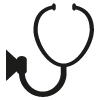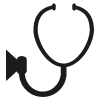Sugary drinks, the evil of high reward beverages | Mental Health

 Daily intake of a sugar-sweetened drink for as few as 3 weeks caused changes in brain response to beverage-related stimuli in healthy-weight individuals,
Daily intake of a sugar-sweetened drink for as few as 3 weeks caused changes in brain response to beverage-related stimuli in healthy-weight individuals,
a researcher found in a randomized controlled trial published online in The American Journal of Clinical Nutrition.
“These data emerged in an experimental free-living setting and without changes in body mass, providing vital information regarding the temporal precedence of aberrant neurobehavioral response patterns seen in obesity and establishing previously undetected consequences of the daily consumption of branded high-sugar beverages,” wrote researcher Kyle S. Burger, PhD, of the University of North Carolina at Chapel Hill.
The study involved 20 healthy-weight participants randomly assigned 1 of 2 high-sugar-sweetened beverages daily for 21 days. Participants underwent functional magnetic resonance imaging (fMRI) scans and completed behavioral and hedonic assessments before and after the study. Daily beverage consumption, Dr. Burger found, resulted in decreases in dorsal striatal response when participants received their drink as well as decreased ventromedial prefrontal response during logo-elicited anticipation. The prefrontal response decrease correlated with increased behavioral disinhibition toward the consumed beverage logo.
Daily beverage consumption, Dr. Burger found, resulted in decreases in dorsal striatal response when participants received their drink as well as decreased ventromedial prefrontal response during logo-elicited anticipation. The prefrontal response decrease correlated with increased behavioral disinhibition toward the consumed beverage logo.
- Daily consumption also increased precuneus response to both juice logos compared with a tasteless control drink, Dr. Burger reported, suggesting a generalized effect toward beverage cues.
- Finally, the study found that repeated consumption resulted in hedonic devaluation of a similar non-consumed beverage.
“Collectively, these preliminary data indicate that neurobehavioral adaptations can arise from the repeated intake of a highly rewarding beverage,” Dr. Burger wrote, “which may reflect the initial unfolding of patterns previously associated with habitual overeating and obesity.”
He recommended more research with larger samples to replicate the findings as well as to establish whether the observed neurobehavioral adaptations are specific to sugary beverages or related to the repeated consumption of any type of drink or food.


